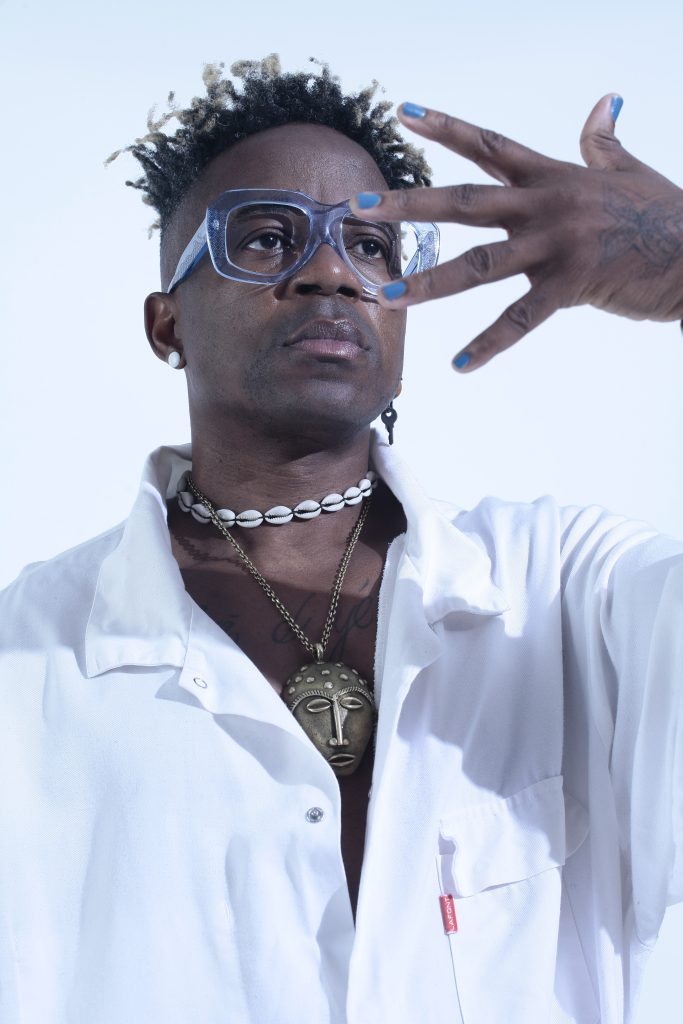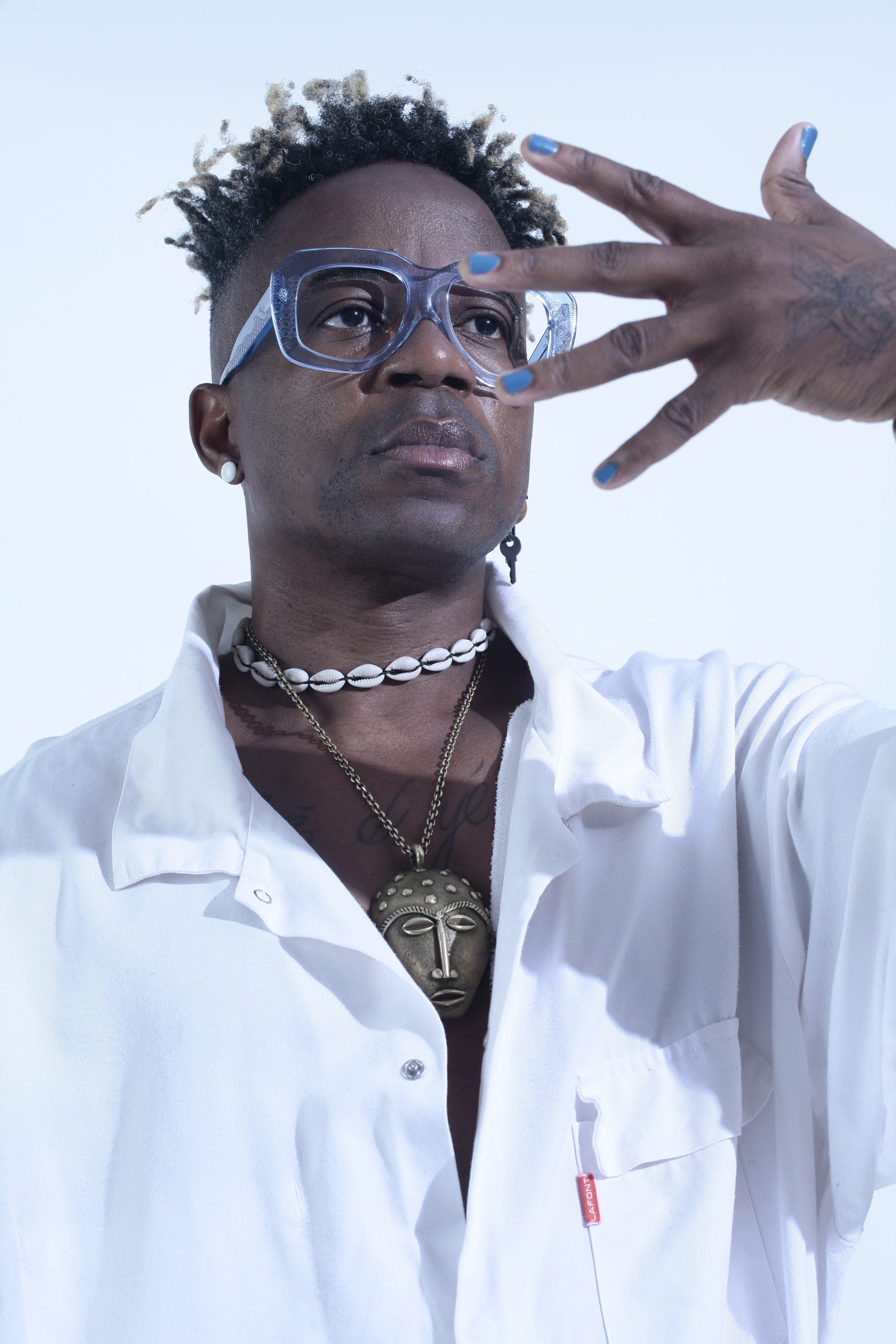
Blick Bassy releases his fifth album Mádibá with shows in Quebec City, Montreal and Vancouver
French-Cameroonian singer-songwriter Blick Bassy is back with a fifth album entitled Mádibá. The album will be released today on the French label InFiné (Rone). He will perform at the Festival d’Été de Québec on July 12, in Montreal at the Festival Nuits d’Afrique on July 13, and at the Vancouver Folk Festival on July 15.
Born in the village of Mintaba in southwest Cameroon, Blick Bassy grew up in Yaoundé, the country’s capital. There he learned music on his own and became familiar with traditional rhythms and styles such as Bolobo singing and Assiko, a form of dance accompanied by music played on guitars and percussion. He kicked off his solo career in 2009 with the debut album Léman, recorded in Salif Keita’s studio in Bamako.
Blick Bassy’s albums have a humanist and universal dimension. Mádibá is a collection of ten songs in the form of fables and dedicated to the theme of water. Marked by his airy, angelic voice, the compositions are carried by delicate guitar and synth melodies and sober brass arrangements executed on euphonium, flugabone, trumpet, flugelhorn, and trombone. Sung in the Bassa language (one of the official languages of Cameroon), the diaphanous and modernist songs bear witness to a contemporary and poetic Africanity, at the crossroads of soul, folk, and electro.
Bassy co-produced Mádibá with Romain Jovion – the pair had previously co-produced the album AY by rapper Ami Yerewolo). Malik Djoudi co-arranged the opus, drawing inspiration from soul, folk, and the minimalist arrangements of James Blake, Bon Iver, and RY X.
Listen to Mádibá below and learn more about Blick Bassy via our Five Questions With segment.
Care to introduce yourself to our readers?
I am Blick Bassy, a multidisciplinary musician from Cameroon who has been living in France for a decade.
Tell us a bit about your most recent release.
My latest album, Mádibá, is dedicated to one of the most essential elements for the survival of all living beings: water. I wanted to devote an entire album to this theme to remind us of the urgency of creating a balanced relationship between living beings. My songs are written like fables, to create empathy among humans towards the living.
Where do you tend to pull inspiration from when writing?
Each of my albums starts with a theme that inspires the melodies, which in turn inspires the lyrics. I like to start with the problems that plague our societies, and everything is also linked to the social condition of living beings from African spaces.
Do you have any upcoming shows you’d like to tell us about?
I am currently preparing a tour in Canada, the United States, and Europe, where I plan to present this album with more spatial and airy sounds. I am convinced that my approach can surprise those who think that African music is exclusively traditional. In live performances, there is a real connection with the audience.
What’s your goal for 2023?
This year, I want to go even further in my career by touching even more hearts with this album. Participating and contributing through art to the awareness for the emancipation of the inhabitants of the Earth is one of my greatest goals.


